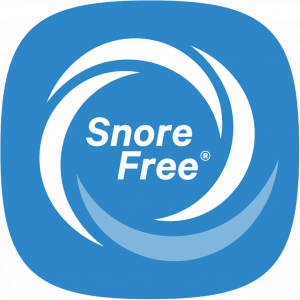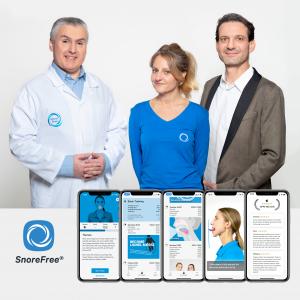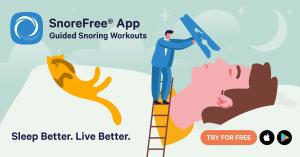Sleep better. Live better. SnoreFree app therapy our contribution to the World Sleep Day 2021
SnoreFree has a scientific background, cures snoring naturally with simple speech therapy exercises and increases sleep & life quality within a few weeks.
Sleep problems will continue to be a real challenge in 2021.
The 14th World Sleep Day is a call of all sleep experts worldwide to raise awareness on sleep issues and to draw attention to the contribution of sleep for a better quality of life, thus improving global health. World Sleep Day is set every year on the Friday before the spring solstice - this year that’s March 19. Earth’s axis then is exactly perpendicular to the line connecting the centers of the Earth and the Sun, and the equinox occurs on Earth. The World Sleep Day’s target is to inform and educate the people about the importance of sleep and to change the way we look at our our sleep.
"It is often a choice of no sleep or Ambien ," Elon Musk.
"It’s the devil’s aspirin!", Charlie Sheen.
"Ambien was harder to quit than alcohol," John Stamos.
Snoring harms your health
Snoring and sleep-apnea cause a drop of oxygen in the blood and thus in the brain during sleep. The longer and louder a person snores, the greater the long-term risks are for high blood pressure and other cardiovascular diseases, as well as for many other consequential damages. The root cause of snoring and sleep-related airway obstructions is always a muscular weakness in the mouth and throat: The tissue slackens and collapses in sleep and impedes the flow of breath.
Heavy snoring impairs the quality of sleep not only of the partner, but also of the snorer himself. In severe cases, snoring can even lead to breathing pauses during sleep, known as obstructive sleep apnea (OSA). Symptoms such as constant daytime tiredness, lack of concentration and vigilance, tendency to microsleep attacks, increased risk of accidents and general loss of performance are common results; in the long term, the risk of heart attack, stroke, kidney damages, male erectile dysfunction and further more is increasing. For heavy snorers, life expectancy can be shortened by up to 10 years.
Snoring facts
Worldwide more than 2.5 billion people suffer from snoring. Almost 1 billion include breath intermitted sleep - obstructive sleep apnea (OSA). More than 500 million partners lose 2 hours of their sleep every night. Only in Amerika, there are about 100 million snorers, of which 25 million are suffering from an OSA.
Snoring is an early warning sign of future serious health risks.
“Snoring is more than a bedtime annoyance and shouldn’t be ignored. Patients need to seek treatment in the same way they would if they had sleep apnea, high blood pressure or other risk factors for cardiovascular disease,” says lead study author Robert Deeb, M.D., a senior staff physician with the Department of Otolaryngology-Head & Neck Surgery at Henry Ford.
Snoring and Covid 19
"Snoring increases the risk of hospital admission due to COVID-19. OSA patients have a more than four time higher risk of hospitalisation due to a COVID-19 infection and a subsequent respiratory failure. Overall, OSA increases the risk of getting SARS-CoV-2 eightfold. Among patients with COVID-19 infection, OSA was associated with increased risk of hospitalization and approximately double the risk of developing respiratory failure."
SnoreFree Health App - for restful sleep & more harmony in relationships.
The SnoreFree training has a reasonable scientific basis and improves significantly the quality of sleep and life within a few weeks. SnoreFree enhances pronunciation and helps strengthen the immune system by a better sleep. The oral workout strengthens the muscles in the mouth and throat, similar to a voice training. With only 10 minutes of daily practice, 80% of our users observe a noticeable reduction in their snoring sounds and a remarkable improvement in their sleep. This unique anti-snore therapy was developed by our co-founder, the speech therapist Dario Lindes, and has been successfully applied by him for 13 years on hundreds of patients. SnoreFree is the smart version of this highly effective anti-snoring gym includes 49 easy-to-follow video exercises, an individualised 4-level training plan, information for better sleep, explanations of anatomy, and meditations.
How do adults sleep?
In an online survey for the WSD 2020, 1000 adults were asked about their sleep behaviour and sleep quality.
For about 1/5 of all respondents, the last restful night was up to 6 days ago. Among 25-34-year, 1/4 had not slept well for up to 6 nights in the past week. Striking: 8.5% of the women cannot remember at all, when they had slept well their last time. Among men, the number was 5.3%. Only 10% of respondents said they felt better after sleep than before. Half of the people surveyed had woken up the night before the interview. This percentage increases with the age.
The consequences of insomnia and bad sleep: chronic fatigue, unproductivity, risk of accidents, neglect of interests, and even depression. Almost half of all respondents stated that they usually don’t feel refreshed, but tired, exhausted or or worn out after waking up, or that they would even like to continue sleeping generally. Among 25-34-year, 63% say they are not fit for the day in the morning.
According to the survey results, those who sleep poorly tend to make more mistakes during the day, to slip up more often, have a higher rate of verbal errors, and eat more high-calorie food. Productivity suffers: around 23%. In the 25-34 age, this figure is as high as 34%. Almost 1/5 in this age group also tend to skip work meetings as a result of a bad night.
Fatigue and tiredness cause the "demon of laziness" to take over: 1/3 of those surveyed drop a planned sport’s activity after a bad night or canceled a social event.
Although most sleep disorders can be prevented and treated, only 1/3 of those affected seek professional help.
Media: https://www.dropbox.com/sh/8i603d13tj8p031/AABWd0F26Bi0gcdyN_mes_gGa?dl=0
Sigismund Gaenger
Snore Free Health App
+43 676 5236465
email us here
Visit us on social media:
Facebook
Twitter
LinkedIn
SnoreFree Health App - introduction of the co-founders & the app
Legal Disclaimer:
EIN Presswire provides this news content "as is" without warranty of any kind. We do not accept any responsibility or liability for the accuracy, content, images, videos, licenses, completeness, legality, or reliability of the information contained in this article. If you have any complaints or copyright issues related to this article, kindly contact the author above.



